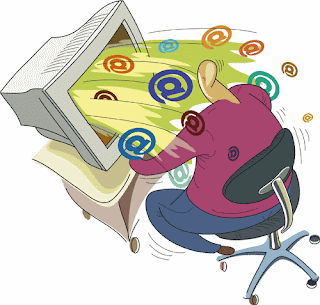
According to a Radicati Group study, over 1.4 billion people used email as a form of communication in 2009. Moreover, the group predicts that this total is expected to rise to 1.9 billion users in 2013. With so many people using email worldwide – for both personal and career purposes, proper email etiquette is more important than ever.
Why is email etiquette important? Well, employees and managers do need to convey a professional image. Further, properly worded emails do allow people to sort through their email more quickly and therefore, proper email etiquette results in overall improved business efficiency. Interested in learning more about proper email etiquette? Read on!
#1 - Write Concise Subject Lines
For maximum efficiency, it is a good idea to ensure that the subject line of your email is relevant to the actual content in the email. In this way, the email recipient can better prioritize his or her email inbox without having to spend time opening the email.
#2 - Make it Personal
You should ensure that you personalize the email to a specific person. Otherwise, the email can end up sounding cold and indifferent on the recipient’s end.
#3 - Be Clear at all Times
Why is email etiquette important? Well, employees and managers do need to convey a professional image. Further, properly worded emails do allow people to sort through their email more quickly and therefore, proper email etiquette results in overall improved business efficiency. Interested in learning more about proper email etiquette? Read on!
#1 - Write Concise Subject Lines
For maximum efficiency, it is a good idea to ensure that the subject line of your email is relevant to the actual content in the email. In this way, the email recipient can better prioritize his or her email inbox without having to spend time opening the email.
#2 - Make it Personal
You should ensure that you personalize the email to a specific person. Otherwise, the email can end up sounding cold and indifferent on the recipient’s end.
#3 - Be Clear at all Times
Ensure that that the contents of the email are written in a succinct manner. Now is definitely not the time to write that Great American Novel! ;) Breaking the content into smaller paragraphs also makes the email that much easier to read for the recipient. Moreover, the email should answer any questions that were asked in previous emails and provide additional relevant information.
#4 - Remember to Use Spell-check
As most email programs do come equipped with a spell-check feature, it is a good idea to take advantage of this tool. In other words then, there is no excuse for misspellings and improper grammar use.
As you may already know, emails should be always be answered in a timely manner. For instance, most customers expect a response within a business day or at least within a twenty-four hour time period. If you are not able to send a complete reply, it is courteous to send a note to state that you will be sending a full reply as soon as you can.
#6 - Do not Forward Emails Without Permission
Today, many people forward emails without thinking twice about forwarding an email. However, as many work-related emails may contain sensitive information, it is an excellent idea not to forward any emails without first obtaining permission from the sender.
#7 - Do Not “Cry Wolf”
Only send emails designated as “urgent” when the email is actually a high priority one. For instance, if you always mark your “less than urgent” emails as “urgent”, most people will become desensitized to this designation; thus, when there is a real emergency, people will not treat the email the immediate attention that it deserves.
Well there you go! With these tips, you are well on your way to sending professional – and efficient – emails.
By: Larisa Redins
No comments:
Post a Comment